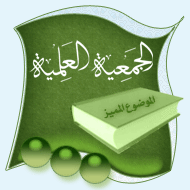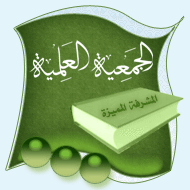What is basic linguistic theory?
The expression "basic linguistic theory" (following R. M. W. Dixon) refers to the theoretical framework that is most widely employed in language description, particularly grammatical descriptions of entire languages. It is also the framework assumed by most work in linguistic typology. The status of basic linguistic theory as a theoretical framework is not often recognized. People using basic linguistic theory often characterize their work as atheoretical or theory-neutral or theoretically eclectic. However, there is really no such thing as atheoretical or theory-neutral description, since one cannot describe anything without making some theoretical assumptions. The extent to which most descriptive work shares the same theoretical assumptions is actually rather striking, especially when one considers how much such work has in common in its assumptions compared to other theoretical frameworks. It is probably the most widely used and best known theoretical framework in the field, especially outside the United States. It is particularly popular among linguists who are more interested in languages than in language. Many linguists who are adherents of other theoretical frameworks assume it as a point of departure, as a framework they wish to improve on.
Unlike many theoretical frameworks in linguistics, which are often ephemeral and pass quickly into obsolescence, basic linguistic theory is a cumulative framework that has slowly developed over the past century as linguists have learned how to describe languages better. It is grounded in traditional grammar and can be seen as having evolved out of traditional grammar. It has also been heavily influenced by pre-generative structuralist traditions, particularly in emphasizing the need to describe each language in its own terms, rather than imposing on individual languages concepts whose primary motivation comes from other languages, in contrast to traditional grammar and many recent theoretical frameworks. It has taken analytic techniques from structuralist traditions, particularly in the areas of phonology and morphology. But it also contrasts with work that is more purely structuralist in attempting to describe languages in a more user-friendly fashion, in including semantic considerations in its analyses, and in employing terminology that has been used for similar phenomena in other languages.
Basic linguistic theory has also been influenced to a certain extent by generative grammar, though the influence has primarily been from early generative grammar (before 1970) and is often indirect. The influence largely reflects the fact that early generative grammar examined many aspects of the syntax of English in great detail, and the insights of that research have influenced how basic linguistic theory looks at the syntax of other languages, especially in terms of how one can argue for particular analyses. The influence of generative grammar can be seen in the way that certain constructions in other languages are identified and characterized in ways reminiscent of constructions in English, from cleft constructions to "topicalizations" to reflexive constructions. More recent work in generative grammar, especially Government-Binding Theory, has had essentially no impact on basic linguistic theory.
In the past 30 years, the primary influence on basic linguistic theory has come from work in linguistic typology. This influence has come primarily from the recognition of recurrent sorts of phenomena crosslinguistically and basic linguistic theory has incorporated many substantive concepts discussed in the typological literature. This includes such notions as split intransitivity, antipassive constructions, internally-headed relative clauses, switch reference, and head-marking. Work in typology has also influenced the way linguists describing languages think about such things as ergativity and relative clauses.
Basic linguistic theory differs from many other theoretical frameworks in that it is not a formal theory but an INformal theory. That is, many grammatical phenomena can generally be characterized with sufficient precision in English (or some other natural language), without the use of formalism.
The above discussion focuses on the morphosyntactic side of basic linguistic theory (or what one might call "basic syntactic theory"), but one can also trace the historical influences on phonology in basic linguistic theory. The concept of the phoneme is probably the most central phonological concept in basic linguistic theory: identifying the phonemes in a language remains the most fundamental task in describing the phonology of a language. But generative phonology has also influenced basic linguistic theory: language descriptions often find the generative notion of phonological rule useful, and the descriptive tools of more recent phonological theories, especially autosegmental phonology, have proven useful for descriptive linguists.




































